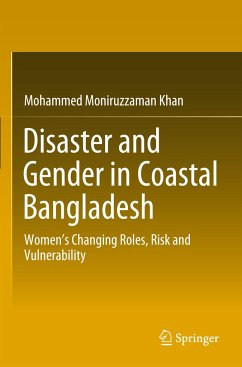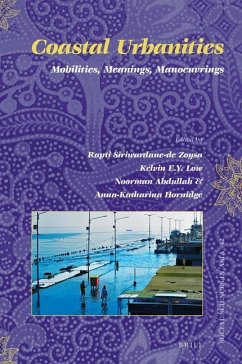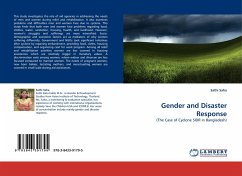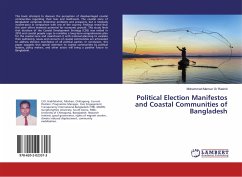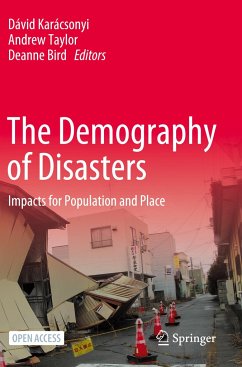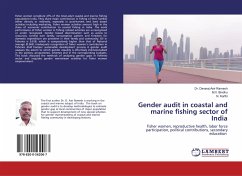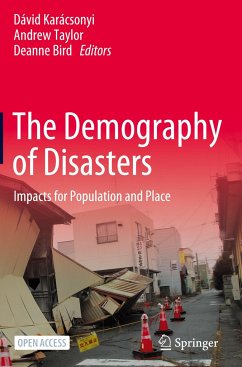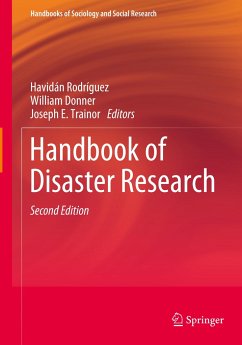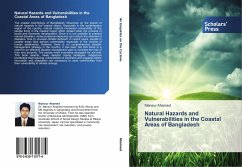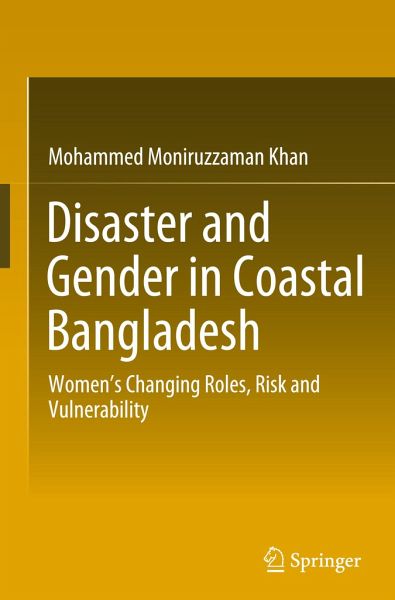
Disaster and Gender in Coastal Bangladesh
Women's Changing Roles, Risk and Vulnerability
Versandkostenfrei!
Versandfertig in 6-10 Tagen
98,99 €
inkl. MwSt.
Weitere Ausgaben:

PAYBACK Punkte
49 °P sammeln!
This volume explores the discourse of disaster and women in the existing social settings and state disaster-related affairs in coastal Bangladesh. It covers various issues ranging from disproportionate vulnerability, coping and adaptation mechanisms for women, limitations for promoting participation and involvement of women in the decision-making process both in family and community and changes in the role and responsibilities of women for reducing disaster risk and vulnerability. It contributes to the deconstruction of gender-based identity by addressing women's changing practices and roles i...
This volume explores the discourse of disaster and women in the existing social settings and state disaster-related affairs in coastal Bangladesh. It covers various issues ranging from disproportionate vulnerability, coping and adaptation mechanisms for women, limitations for promoting participation and involvement of women in the decision-making process both in family and community and changes in the role and responsibilities of women for reducing disaster risk and vulnerability. It contributes to the deconstruction of gender-based identity by addressing women's changing practices and roles in the coastal area in terms of the involvement of women with the development process, earning/income generation activities, decision-making process, access and entitlements to resources. This book presents the most current and inclusive circumstances of disaster and women of the coastal area in Bangladesh. The insights obtained through the eyes of a sociologist from a holistic perspective make this book different and unique. The book is of interest to researchers, academics, policymakers and professionals engaged in the social understanding of disaster studies, as well as to researchers and practitioners in interdisciplinary domains, including sociology, gender studies, social work, environmental studies, and development studies.





